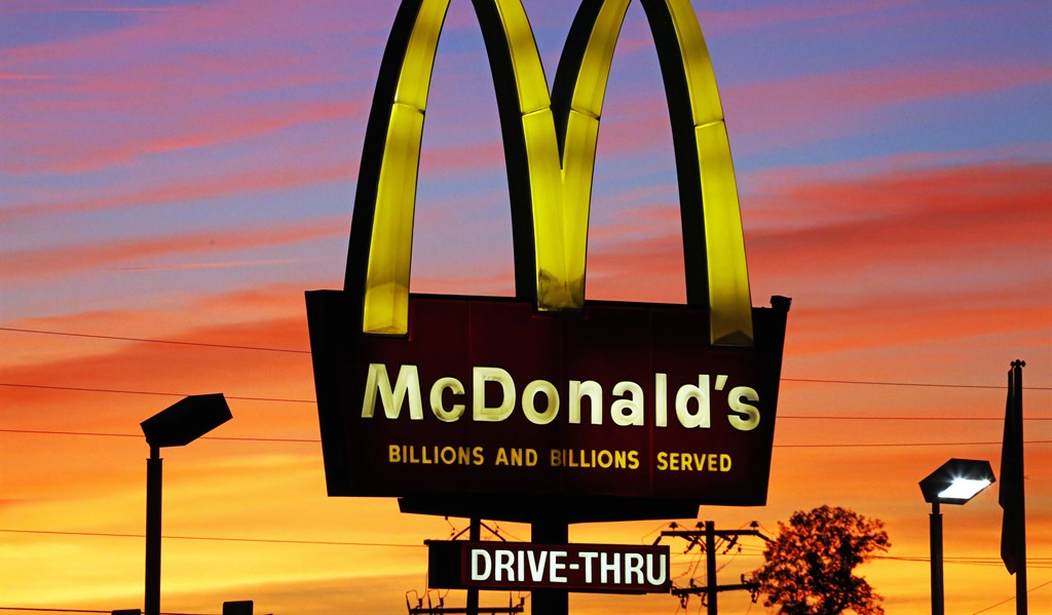"Progressive" California imposed a major minimum wage increase on its fast food industry earlier this year, with Gov. Gavin Newsom hailing the policy as a "win win win." Major fast food chains agreed to the "deal," knowing that some sort of harm was coming no matter what, avoiding even more extreme elements of the proposal. But the government artificially increasing the cost of labor -- and therefore of doing business -- always has consequences because the laws of basic economics remain undefeated, no matter what Democrats in blue states may assert in press releases. No matter what the spin may be, and even if some workers do benefit from such policies, there are negative externalities. Prices are increased to offset new costs imposed upon employers. Automation is embraced as a means of reducing the number of employees necessary to maintain profits. And jobs are eliminated, for purposes of efficiencies and cost savings. Companies and employers adapt to business realities. It's how markets work.
And sure enough, in the wake of the state's fast food-specific minimum wage hike, guess what's happened to thousands of jobs in that particular sector? Surprise:
California's fast food industry shed more than 6,000 jobs after Democrats passed a bill mandating a $20 minimum wage for most fast food restaurants in the state. | @ryanamills77 https://t.co/y89Da37YTN
— National Review (@NRO) December 5, 2024
U.S. Bureau of Labor Statistics data show that between September 2023, when California governor Gavin Newsom signed Assembly Bill 1228, and June 2024, Golden State fast food employment dropped from 570,909 jobs to 564,743. That’s a loss of 6,166 jobs, or 1.1 percent, according to an analysis by the nonprofit Employment Policies Institute. During that same period a year earlier, California fast food restaurants added 17,528 jobs, a 3.1 percent increase over those ten months in 2022 and 2023, the data show. “Newsom took a sledgehammer to the state’s restaurants when he signed the $20 fast food minimum wage law,” Rebekah Paxton, EPI’s research director, said in a press release. “Jobs have been smashed by thousands and the industry is struggling to stay afloat.”
AB 1228 was a compromise between the fast food industry and lawmakers. In exchange for eliminating the most extreme aspects of the FAST Act, the fast food industry agreed to drop its ballot initiative and raise starting pay to $20 an hour starting April 1, 2024. The $20 minimum wage is in place for fast food restaurants with at least 60 locations nationwide. Ahead of the wage hike, some pizza chains began laying off delivery drivers and farming out delivery operations to third-party apps. Leaders of some chains acknowledged they would raise prices to cover the additional labor costs. Restaurants increasingly turned to technology and robots to increase efficiency and reduce labor costs.
This is Newsom's 'win-win-win.' Government-forced minimum wage increases can be especially detrimental to workers in automation-vulnerable industries. Those who keep their jobs get paid more, but many others' wage goes to zero because they've become unemployed. Astoundingly, Californians seemed to internalize some of these lessons in November, narrowly voting down a ballot initiative to increase the statewide minimum wage -- an unprecedented development:
According to the Employment Policies Institute, "the rejection marks the first time in California history that a statewide minimum wage ballot measure has failed." The outcome was the latest indication of a rightward shift in the reliably blue state, which saw a number of surprising results from the Nov. 5 election. Voters overwhelmingly supported a ballot measure to undo a decade of progressive criminal justice reform, and rejected an initiative that would have banned forced prison labor. Opponents and economists said that by striking down the proposed minimum-wage increase, voters signaled that they were nervous about businesses raising prices to offset their added labor expenses. The prospect of paying more for consumer goods was especially unappealing after years of high inflation, which has led to a persistent feeling among many people that they’re on shaky financial footing. (Los Angeles Times)
It seems like the California electorate is being exposed to quite a few painful policy lessons in recent years. Let-wing dogma and talking points often tend to butt up against unplesant realities in unmistakable ways:
California's AB5 law has now gone national. Newsom’s former deputy chief of staff called it "one of the most destructive pieces of legislation in the past 20 years". MiIlions who are independent contractors, self-employed, or entrepreneurs are now at risk. https://t.co/iGDmkcvU0B
— Matt Oberhardt (@obes00) January 16, 2024
Even a pandemic doesn't stop California bureaucrats!
— John Stossel (@JohnStossel) May 5, 2020
That state just sued Uber and Lyft for violating a ridiculous law called #AB5 that bans freelance work in many fields.
Here's how the law hurts people: pic.twitter.com/fMVoyDurEj
Parts of California’s AB 5 make it one of the most destructive pieces of legislation in the past 20 years. It’s truly horrific how many people are negatively impacted by it.
— Yashar Ali 🐘 (@yashar) January 7, 2020
Independent truckers, who are overwhelmingly immigrants trying to provide for their families, are now being forced into giving up their livelihoods due to this disastrous law leading them to protest. This won't help supply chain issues. https://t.co/bEVzd8rbUL
— AG (@AGHamilton29) July 25, 2022
"Progress."

























